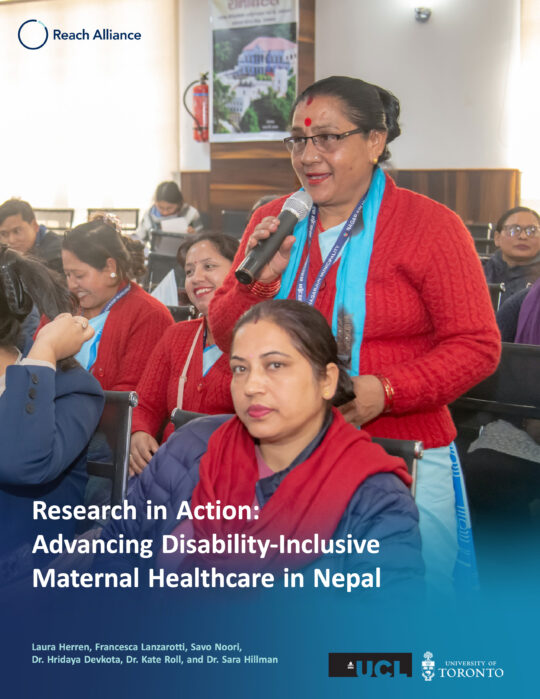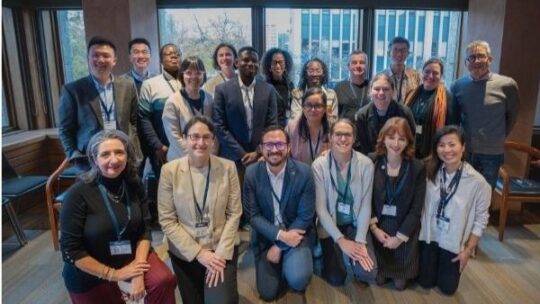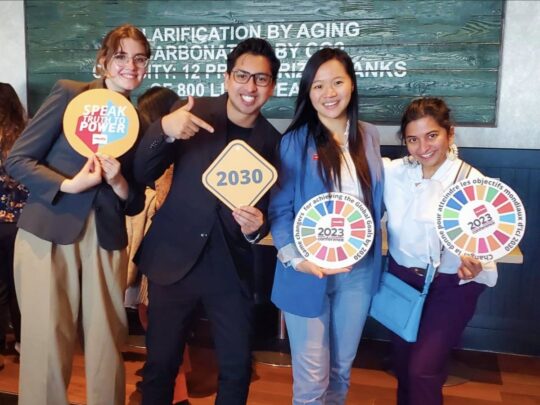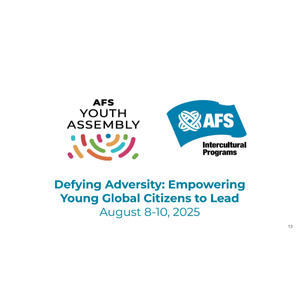News: Alumni, Latest News
Operation Remote Immunity: A Model for Inclusive Public Health Campaigns in Indigenous Communities
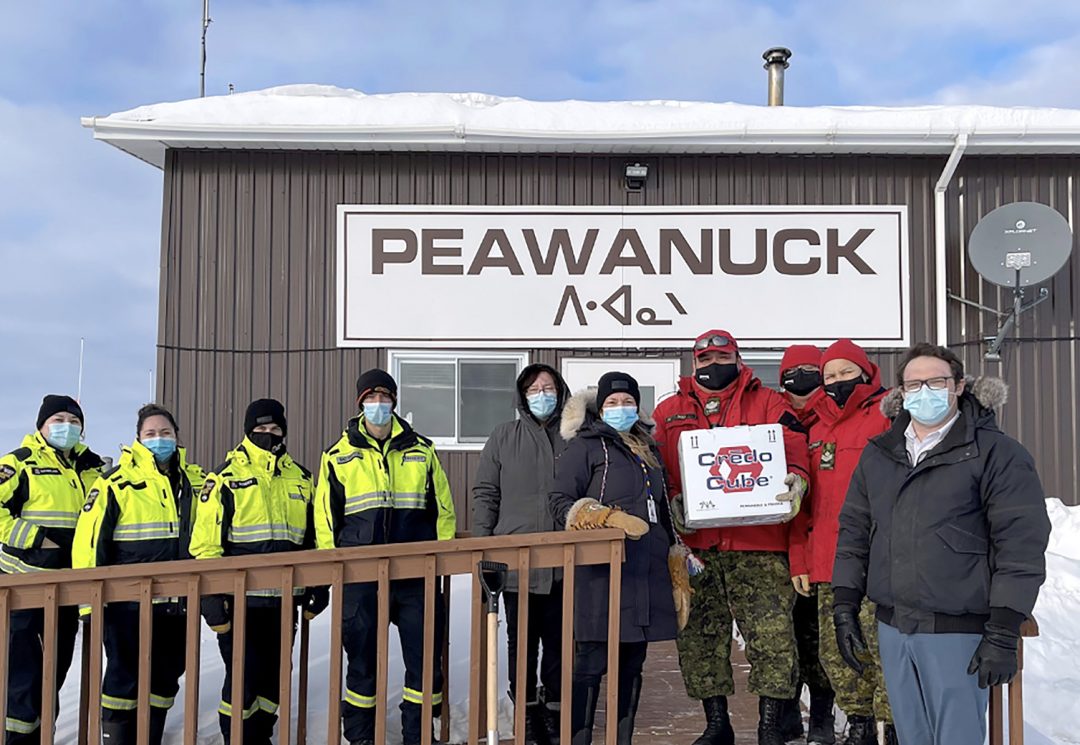
Over the last year, University of Toronto Reach researchers Shanice Burton, Ella Hartsoe, Wan Li, Avril Wang, and faculty mentor Joseph Wong drew on extensive research as well as interviews with the provincial air ambulance service Ornge, its leaders and task team members, and Indigenous and non-Indigenous policymakers and medical volunteers, to provide an account of an important COVID-19 initiative. Specfically their case study examines Ornge’s “Operation Remote Immunity (ORI)” and its efforts to deliver and administer vaccines to Indigenous communities in Northern Ontario against COVID-19. The report focuses on the implementation of ORI in the northeastern communities that are served by the Weeneebayko Area Health Authority (WAHA).
In December 2020, the Ontario provincial government’s vaccine task force announced that remote Indigenous communities in Northern Ontario would be among the first groups to be prioritized to receive COVID-19 vaccines. In a matter of months, the first phase of ORI launched, and subsequent phases proceeded over 2021 and 2022, resulting in tens of thousands of Indigenous people being vaccinated.
Geographically isolated and lacking access to medical facilities, these communities were exceptionally vulnerable to the devastating effects of COVID-19. Moreover, the absence of year-round accessible roads made vaccination campaigns a logistical challenge.
ORI centered community-led involvement and Indigenous leadership in the initiation, planning, and implementation of its campaigns at all levels. It demonstrated that the principles of co-leadership and equity are not only complementary, but necessary to the operational success of any public health interventions. As Wan Li explained, “ORI exemplifies the importance of building community resilience to ‘bounce forward’ from the pandemic and pre-existing health inequities.”
As the Reach team began their research, they had important conversations about their engagement with the Indigenous community in Northern Ontario. Shanice Burton shares how “this was particularly important because we had no Indigenous people on our research team — something that we were very mindful of. We sought partnership with and guidance from the Weeneebayko Area Health Authority (WAHA) and their president and CEO Lynne Innes who offered her guidance and expertise throughout our research process. As we learned and grew, our process grew — we submitted an additional Research Ethics Board (REB) protocol to the WAHA research ethics committee for its consideration, feedback and approval, ensuring we were collaborating with the organization every step of the way.”
As we prepare to honor the National Day for Truth and Reconciliation,policymakers must include Indigenous leaders to advise, and ideally co-lead where possible, on health initiatives serving Indigenous peoples and communities. By including Indigenous leaders and their perspectives, non-Indigenous policymakers can better account for the historical oppression and violence that Indigenous peoples in Canada have faced, while ensuring that Indigenous input is integrated into all health programs aimed at serving Indigenous people and their communities.
“If the operation failed its promise to Indigenous communities and harmed them as opposed to helping, volunteers and Ornge employees got to go home. For Indigenous leaders who live, work, and raise families in these communities, the social and political impacts of an operation gone wrong were much more palpable.”
— Lynne Innes, president and CEO, Weeneebayko Area Health Authority
Operation Remote Immunity emerged as a testament to the resilience and strength of Indigenous communities and their valuable leadership during the COVID-19 pandemic. However, the fight against anti-Indigenous racism and discrimination in the healthcare system requires sustained, long-term solutions. Faculty mentor Joseph Wong touches on the significance of this case study report and how it sheds light on the importance of community-led implementation noting that “the barriers to delivering vaccines to remote, fly-in Indigenous communities are historical in nature, specifically the challenges in overcoming the legacies of violence done unto Indigenous communities and their understandable mistrust of government initiatives”.
ORI’s journey is a source of inspiration, highlighting the potential power of collaboration, equity, and Indigenous leadership in shaping a more inclusive and resilient future for public health campaigns in Indigenous communities.
Read the full case study report here.
